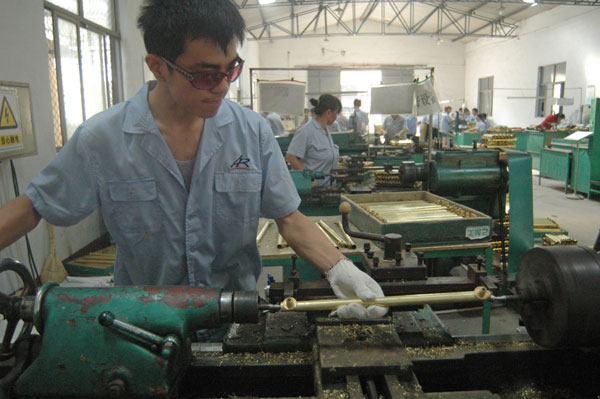Chinese horse-racing to debut with meeting in spring 2016
Updated: 2015-08-07 18:16
By Cecily Liu(China Daily Europe)
|
|||||||||||
Chinese horse-racing enthusiasts have established the China Jockey Club in response to a rising level of interest in the sport, and plan its first race meeting in spring 2016.
Although horseracing is a young industry in China, it has grown rapidly. In 2010, there were an estimated 500 professional clubs, up from only 100 in 2008, according to figures collated by the China (Shanghai) International Horse Fair.
The Jockey Club will be based in Beijing from October. The organization will host its first race meeting in spring 2016, spread over three days. The first day will center around international races, and the last day will be given over to Chinese national races. In between the second day will feature cultural activities, including picture shows, a play and a musical performance.
The plans were announced on Wednesday at a news conference in London's Whitehall, attended by about 40 guests.
Xiang Xiaowei, cultural counselor of the Chinese embassy in the UK, said that the China Jockey Club delegation's visit the UK is very timely, as this year is the China UK culture year. "We wish them every success of what they would like to achieve," Xiang said.
Rory MacDonald, former chief executive of the British Racing School, said that world class racing will require the world class training and development, and there is no doubt China will be able to achieve that.
Mark Kershaw, senior advisor to the China Jockey Club, said the racing world was looking forward to the upcoming race meeting, with fans and participants from all over the world descending on China.
"In the meantime, we must also realize that the potential for racing in China is enormous but it will need a proper infrastructure for it to succeed and realize the vision," Kershaw said.
Lillian Davies, secretary general of the China Jockey Club, said that the race will be held in accordance with the highest international standards, to demonstrate China's commitment to horse racing.
"International horse racing is an important part of cultural exchange, but in China it is a young and growing industry, this gives us the more reason to host the race to a high standard, so that in the future it will become a part of cultural exchange between China and Europe," Davies said.
Over the three-day meeting, both the international races and the domestic races will consist of six events, with around 10-12 horses participating in each race.
The international races will include jockeys from all over the world, who will bring their own horses to the race. These horses will come to China under China's temporary horse import rules, which demand that the horses do not come into contact with domestic horses in China, so they will leave China before the domestic competition begins.
Day three will have participation by jockeys from China and other Asian countries, and the horses will be imported to China under the permanent import regime, and the horses will stay in China for the long term.
The race will take place in Beijing, in a new venue that the China Jockey Club will start to construct in October, which will be ready for the spring. The China Jockey Club will to use the venue to host domestic races, averaging between 52 and 80 races per year. The venue will have a seating capacity of 50,000.
Davies said that the China Jockey Club's activities will have strong ties with European countries, especially the UK, France and Ireland. "As horse racing is just beginning to grow in China, we want to learn from the best practices of horse racing from countries internationally, and then adopt these practices to China's situation," she said.
Davies said that she developed a passion for horse racing when she worked as a director for the Longines Global Champions Tour Grand Prix of Shanghai. "I felt that horseracing can help with cultural exchanges," she said.
Currently the China Jockey Club has 66 members on its advisory board, 40 of whom are from China, and the rest are from Europe. It also has 35 key committee members.
Davies said the key to developing China's horse racing industry is to realize the challenges, to learn from the best international practices, and be innovative with solutions.
Liu Jicheng , Executive President of the China Jockey Club, said China will embark on a new course of horse racing as an important channel to connect with the international community, following the guidelines of public diplomacy under President Xi Jinping.
"China will embark on a new course of horse racing as an important channel to connect with the international community. We believe that the horse racing culture can help us go beyond the industry itself, and build up an all-round platform for public diplomacy as well as a healthy financial chain," Liu said.
To contact the reporter: cecily.liu@chinadailyuk.com
Today's Top News
China rejects Philippine, Japanese, US claims on S. China Sea issue
MH370 passengers' families want more answers
'New Suez Canal' opened
for ship traffic
Trump won't rule out third-party run
China asks further probe into MH370
China's property taxes coming soon
Seven arrested for trafficking women into sex slavery in China
ROK's ex-first lady begins
DPRK visit
Hot Topics
Lunar probe , China growth forecasts, Emission rules get tougher, China seen through 'colored lens', International board,
Editor's Picks

|

|

|

|

|

|






